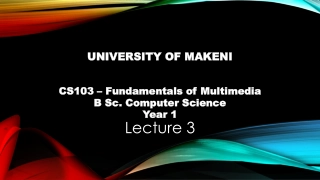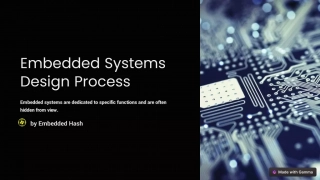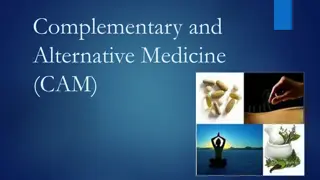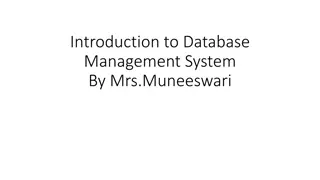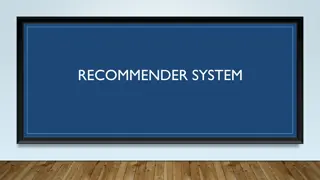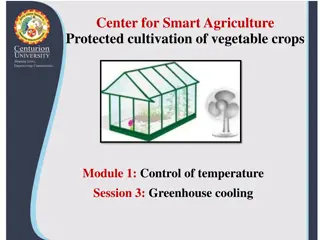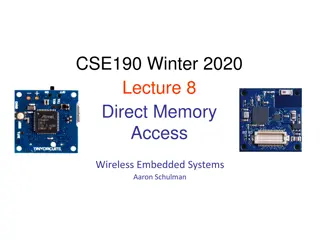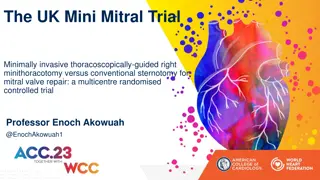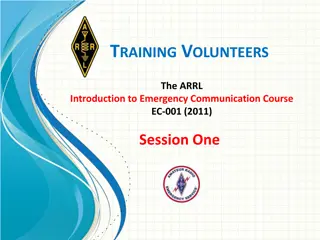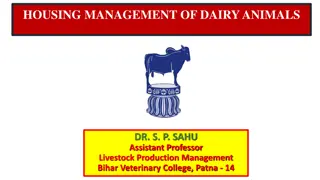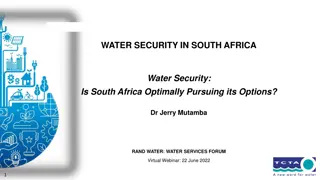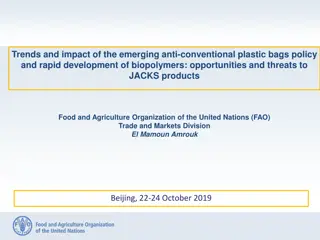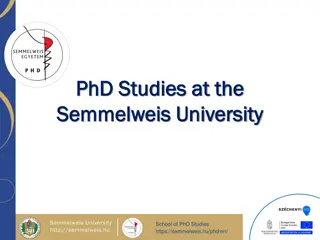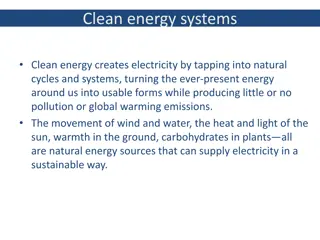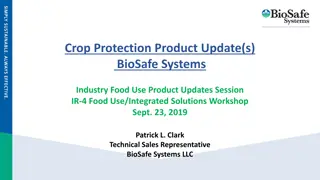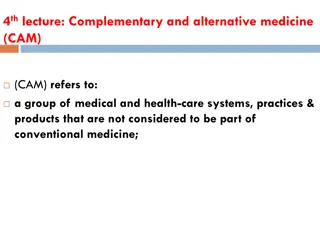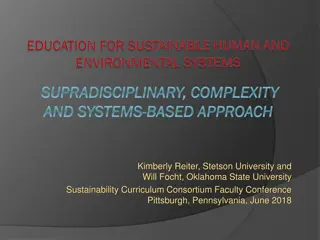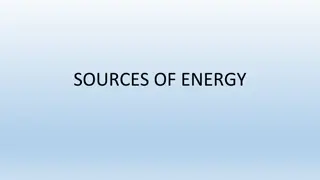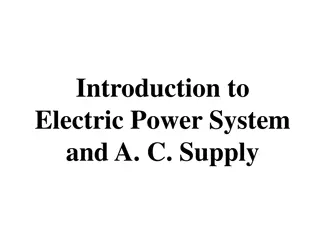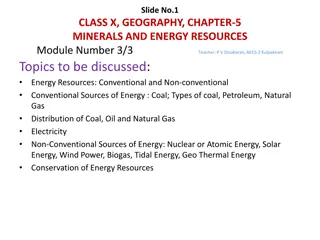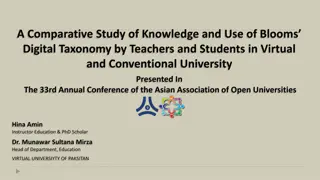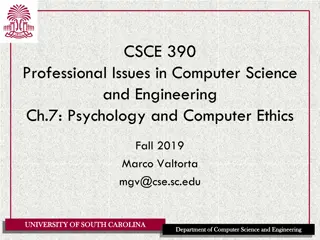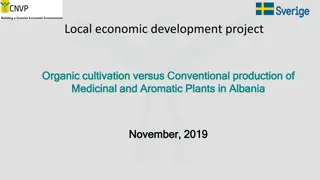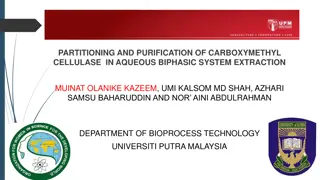Understanding Multimedia Systems: Hardware and Software Components
Multimedia systems require specific hardware and software components to meet the demands of producing and playing multimedia content. Development systems are used for creating content with higher specifications, while playback systems are used for playing multimedia files with lower specifications.
8 views • 46 slides
Embedded Systems Design Process in the Embedded systems
Embedded systems are all around us, from the tiny microcontrollers in our household appliances to the sophisticated control systems in cars and aeroplanes. But how are these systems designed? Let's delve into the basics of the embedded systems design process in simple terms that anyone can understan
2 views • 9 slides
Decision-making Support for Group Leader in Crisis Situations
With a focus on mission-critical tasks, this decision aid for a group leader in crisis situations covers various responsibilities such as interacting with stakeholders, overseeing victim extraction, ensuring safety, and managing human and material resources. The document outlines procedures for hand
0 views • 4 slides
Cellular Mobile Communication in Electronics & Communication Engineering - Technocrats Institute of Technology
Explore the introductory session on Cellular Mobile Communication at Technocrats Institute of Technology, Bhopal. Learn about the limited service capability, poor service performance, and inefficient frequency spectrum utilization in conventional mobile telephone systems. Gain insights into performa
5 views • 30 slides
Overview of Distributed Systems: Characteristics, Classification, Computation, Communication, and Fault Models
Characterizing Distributed Systems: Multiple autonomous computers with CPUs, memory, storage, and I/O paths, interconnected geographically, shared state, global invariants. Classifying Distributed Systems: Based on synchrony, communication medium, fault models like crash and Byzantine failures. Comp
9 views • 126 slides
Load Frequency Control in Power Systems
Electric power systems require Load Frequency Control (LFC) to maintain a uniform frequency, distribute load among generators, and manage tie-line interchange schedules. LFC detects frequency changes, generates real power commands to adjust torque, and ensures stability within specified limits. Reas
8 views • 38 slides
Operating Systems
An operating system is a crucial program that manages all other programs on a computer. It handles tasks like input recognition, file management, and device control. There are different types of operating systems such as single-user, single-task systems, multi-user, multi-task systems, real-time ope
6 views • 11 slides
Understanding Information Systems in Organizational Management
Management in organizations is divided into three levels: operational, tactical, and strategic. Each level requires different information systems to support various activities. Operational systems focus on routine transactions and control processes, while middle-level systems aid in semi-structured
9 views • 39 slides
Understanding Complementary and Alternative Medicine (CAM)
Complementary and Alternative Medicine (CAM) encompasses various treatments, ranging from herbs to yoga, that differ from traditional Western medicine. While complementary medicine involves using these therapies alongside conventional medicine, alternative medicine opts for non-mainstream approaches
2 views • 20 slides
Organic vs Conventional Farming: An Overview
In the debate between organic and conventional farming, both methods have their pros and cons. While organic foods are perceived to follow stricter safety standards, both types meet FDA and USDA regulations. They offer similar nutritional value, but organic farming tends to have lower efficiency due
0 views • 6 slides
Introduction to Database Management System Explained
This presentation covers the basics of database management systems, including definitions of data, types of data, structured and unstructured data, storing data in computers using file systems and database systems, and issues with file systems like data redundancy, inconsistency, difficult data acce
1 views • 18 slides
Understanding Different Types of Recommender Systems
Recommender systems play a crucial role in providing personalized recommendations to users. This article delves into various types of recommender systems including Collaborative Filtering, Content-Based, Knowledge-Based, and Group Recommender Systems. Collaborative Filtering involves making predicti
0 views • 7 slides
Efficient Greenhouse Cooling Systems for Smart Agriculture
Active summer cooling systems like fan-and-pad and fog systems are crucial for maintaining optimal temperatures in greenhouses. These systems work by utilizing evaporation to remove heat from the air. Fan-and-pad cooling systems have been in use since 1954, where water is passed through pads to cool
1 views • 23 slides
Understanding Kohlberg's Stages of Moral Development
Kohlberg's stages of moral development, built upon Piaget's psychological theory, outline six developmental stages of moral reasoning, with each stage offering a higher level of response to moral dilemmas. Kohlberg focused on justice in moral development and emphasized the importance of how individu
0 views • 19 slides
Understanding Trunking vs Conventional Radio Systems in AWIN Network Support
Arkansas Wireless Information Network (AWIN) is a statewide digital trunked communications system utilizing APCO Project 25 standard. AWIN facilitates reliable communication for first responders with over 100 tower sites and 27,000 radios. Trunking enables efficient sharing of communication paths am
0 views • 32 slides
Understanding Direct Memory Access (DMA) in Embedded Systems
Direct Memory Access (DMA) plays a crucial role in transferring large blocks of data efficiently in embedded systems. This technology allows data to be moved between peripherals and main memory without continuous processor intervention, enhancing speed and reducing CPU overhead. By offloading data t
1 views • 16 slides
UK Mini Mitral Trial: Minimally Invasive Thoracoscopic Approach vs Conventional Sternotomy for Mitral Valve Repair
The UK Mini Mitral Trial compares the outcomes of minimally invasive thoracoscopic-guided right minithoracotomy versus conventional sternotomy for mitral valve repair. The trial aims to determine if physical function improvement post-surgery at 12 weeks is superior in the minimally invasive approach
1 views • 24 slides
Understanding Emergency Communication Systems for Volunteer Training
This content covers various topics related to emergency communication systems for volunteer training, including agency communication systems, government radio systems for police and fire departments, emergency medical radio systems, American Red Cross frequencies, and types of served-agency radio sy
2 views • 29 slides
Introduction to Embedded Systems Design
Embedded Systems Design, Chapter 1 provides an insightful overview of embedded systems, distinguishing them from general-purpose computers. The chapter delves into the characteristics of embedded systems, their design considerations, and the various types of embedded computers such as general-purpos
1 views • 7 slides
Housing Management of Dairy Animals: Objectives, Advantages, and Systems
The housing management of dairy animals is crucial to protect them from inclement weather, ensure maximum production, and safeguard against theft. Adequate housing leads to increased milk production, better health of animals, and improved reproductive efficiency. Selection of the dairy farm site is
1 views • 20 slides
Ensuring Water Security in South Africa: Challenges and Solutions
Water security is a critical concern globally, with billions facing water scarcity issues. South Africa, a water-scarce nation, must manage its water resources sustainably. The webinar discusses water security risks, conventional and non-conventional approaches, and suggested solutions. Socio-econom
0 views • 21 slides
Impact of Emerging Anti-Conventional Plastic Bags Policy on Biopolymers: Opportunities & Threats to JACKS Products
The paper discusses the trends and impacts of the emerging anti-conventional plastic bags policy alongside the rapid development of biopolymers, presenting opportunities and threats to JACKS products. It delves into the problematic use of plastics, the boom in the plastic sector, major issues associ
0 views • 11 slides
PhD Studies at Semmelweis University: Programs and Opportunities
Explore the diverse PhD programs offered by the School of PhD Studies at Semmelweis University, including Scientific Doctoral Schools in various fields like Clinical Medicine and Neurosciences. Learn about the types of PhD studies available, such as Conventional PhD Program, MD-PhD Excellence Progra
0 views • 10 slides
Clean Energy Systems: Harnessing Natural Cycles for Sustainable Electricity Production
Clean energy systems tap into natural energy sources like wind, water, sunlight, and biomass to generate electricity sustainably, reducing pollution and global warming emissions. Transitioning to renewable energy technologies can combat climate change, improve air and water quality, create jobs, and
1 views • 20 slides
New Crop Protection Products: BioSafe Systems OxiDate 5.0 and ANEEM
BioSafe Systems, a family-owned manufacturer based in East Hartford, CT, introduces innovative crop protection products OxiDate 5.0 and ANEEM for organic and conventional agriculture. OxiDate 5.0 is a broad-spectrum liquid plant bactericide/fungicide with active ingredients Hydrogen Peroxide and Per
0 views • 17 slides
Comparison Between Takaful and Conventional Insurance: A Detailed Overview
Conventional insurance and Takaful are compared based on principles, practices, and alignment with Shariah law. This comparison examines concepts like pooling resources, Gharar presence, Maisir in insurance, Riba practices, and more. Insights from Joof Momodou Musa at the Global Takaful & Re Takaful
0 views • 16 slides
Information Systems in Organizations: Overview and Implementation
Information systems play a crucial role in organizations, encompassing transaction processing systems, functional area information systems, and enterprise resource planning systems. This content delves into the purpose of transaction processing systems, the support provided by information systems ac
0 views • 30 slides
Overview of Complementary and Alternative Medicine (CAM)
Complementary and Alternative Medicine (CAM) encompasses diverse medical practices, products, and systems outside conventional healthcare. CAM includes treatments like acupuncture, herbal remedies, and meditation. Epidemiological data shows widespread usage, particularly for conditions such as back
1 views • 20 slides
Understanding Cascade Control Systems in Industrial Processes
Cascade control systems play a crucial role in improving process control efficiency by incorporating feedback loops within feedback loops. This type of control architecture helps to better handle disturbances and variations in the process by creating secondary loops that monitor specific parameters.
0 views • 8 slides
Sustainable Education for Human and Environmental Systems
Sustainable Education for Human and Environmental Systems (SHES) focuses on fostering sustainable societies through social learning and systems thinking. It aims to promote interconnectedness between human and environmental systems, with a vision of enhancing well-being while maintaining the viabili
0 views • 19 slides
Understanding Different Sources of Energy
Exploring conventional and non-conventional sources of energy, this content discusses the characteristics of a good fuel source, such as high energy output and ease of availability. It delves into the distinction between renewable and non-renewable energy sources, highlighting fossil fuels as non-re
0 views • 22 slides
Understanding Electric Power Systems and A.C. Supply
Exploring the basics of electric power systems, including A.C. and D.C. supplies, circuit parameters, differences between A.C. and D.C. quantities, and the subdivisions of electrical power supply systems such as generation, transmission, and distribution systems. Learn about generating systems, both
0 views • 29 slides
Energy Resources: Conventional and Non-Conventional Sources Discussed
This presentation covers a detailed discussion on different energy resources including conventional sources like coal, petroleum, and natural gas, as well as non-conventional sources such as solar energy, wind power, and nuclear energy. It explores the distribution, types, and major fields of coal,
0 views • 16 slides
Implementation of Arms Trade Treaty by Republic of Serbia
The Arms Trade Treaty (ATT) was ratified by the Republic of Serbia in October 2014 and entered into force on December 24, 2014. The treaty aims to establish international standards for regulating the international trade in conventional arms, covering activities such as exports, imports, transit, tra
0 views • 24 slides
A Comparative Study of Blooms Digital Taxonomy in Virtual and Conventional Universities
This study presented at the 33rd Annual Conference of the Asian Association of Open Universities focuses on the comparison of knowledge and use of Blooms Digital Taxonomy by teachers and students in virtual and conventional universities. It explores the impact of integrating digital tools in educati
0 views • 24 slides
Understanding Embedded Systems and Cyber-Physical Systems
Embedded systems are specialized computer systems embedded within larger systems, such as control systems and car controllers. This lecture covers real-time aspects, applications of Cyber-Physical Systems (CPS), and examples like the Boeing 777/Airbus A380 cockpit. It discusses the design process of
0 views • 22 slides
Kohlberg's Stages of Moral Development in Computer Ethics
This content explores Kohlberg's Stages of Moral Development in the context of computer ethics, focusing on an ethical dilemma involving Heinz stealing a drug to save his wife. It discusses the different levels of moral reasoning, from pre-conventional to post-conventional morality, and how individu
0 views • 12 slides
Comparative Analysis of Organic and Conventional Cultivation of Medicinal and Aromatic Plants in Albania
This report delves into the challenges and advantages of organic and conventional cultivation of Medicinal and Aromatic Plants (MAPs) in Albania. Issues such as price fluctuations, market trends, and quality considerations are explored. Organic markets offer benefits in quality and client satisfacti
0 views • 9 slides
Partitioning and Purification of Carboxymethyl Cellulase in Aqueous Biphase System
Cellulases enzymes are essential in various industries and purifying them is crucial for understanding their properties. Conventional techniques along with aqueous biphasic systems like liquid-liquid fractionation are used for extraction and separation. The latter enables selective partitioning of b
0 views • 22 slides
Understanding the Complexities of Social Systems
Vibrant communities that build trust and inclusivity can leverage their strengths to solve problems and maximize opportunities for all children, regardless of socioeconomic background. However, failed solutions often address symptoms rather than underlying issues, leading to short-term gains with lo
0 views • 21 slides
